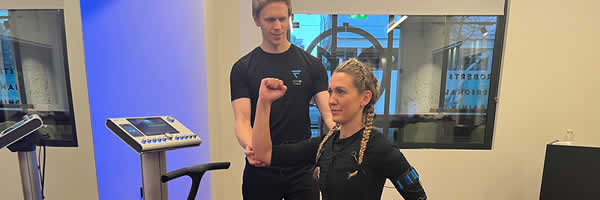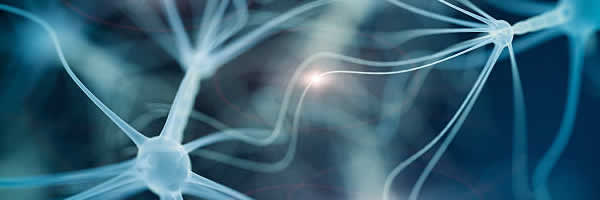Personal Training
The Matt Roberts Personal Training team have long been recognised as industry leaders. With more than a million hours delivered across the UK. Now, our expert training team can coach you wherever you are in the world!
Becoming vegan and following a vegan based diet is rightly or wrongly becoming increasingly popular for ethical, environmental and health reasons with many people on social media becoming almost cult like in their belief in this way of eating. But does a vegan diet really tick or the boxes and is it a healthier option? Why should you decide to be vegan and are there any potential dangers with eating this way?
In this piece I will explore the reasons why the vegan diet can be beneficial and what you need to be aware of to ensure you are optimising your health and wellbeing.
It is important to recognise that any diet which excludes large food groups needs to be considered and looked at in detail before embarking upon to ensure that the body is still being provided with the nutrients it needs. In that respect deciding to “go vegan” shouldn’t a decision that is made on a whim because a friend said it was healthier or a magazine wrote about how it can result in amazing fat loss results. Then truth is that it is harder work and it requires more planning and more knowledge. If you only choosing to eat vegan because you want to lose weight I would encourage you not to make that choice as it will actually prove harder to see results. If however you have your own ethical, environmental or other health motivators then my advice would be to make sure you understand how to make this diet work for you and what the potential difficulties are with a vegan approach.
A vegan diet is a diet which focuses on plant based foods and excludes all meat, fish and animal product (eggs, dairy). Vegans will also often avoid foods that have been made using animal derived products as well.
Potentially yes, a vegan diet can lead to an improved intake of vegetables and a reduction of processed foods. However it can also result in a low protein intake and a higher than required carbohydrate consumption. So as with any diet the answer lies in what foods you choose to eat as to whether or not that diet leads to an improvement in health.
Eating less meat has been publicised to be more environmental friendly because of the impact feeding animals has on the planet. For example the water, grain and energy an animal needs to be given to grow is costly to the environment and these are resources that could be used to feed people or be saved to reduce energy expenditure. Cattle produce a lot of methane and often destroy vital forest areas both which contribute to global warming. Both factors are very important and worth taking note of. However it is important to look at both sides of the story as often what isn’t talked about is the cost of making other produce and non-animal products that a vegan diet would include. It has been shown for example that the environmental cost of making a loaf of bread, from the water the crops require to the harvest, the milling, baking and transporting is little different to the environmental cost of 1 chicken. This could therefore challenge one reason many people may choose vegan over an animal based diet. That’s not to say therefore that eating meat is preferable, it is down to personal preference but it is important to understand the whole picture and be aware of where the information you are reading is coming from. Whatever your reasons for deciding what to do with diet just make sure you do the reading around it so that you are making an informed decision where possible.
There are potentially many benefits of choosing a vegan diet. Firstly it is likely to lead to an increase in vegetable intake and therefore an increase in nutrient intake, helping the body to function more optimally. It is also likely to reduce the amount of processed food and chemicals eaten within a diet, cutting out transfats and other harmful chemicals that can cause health issues. It can lead to a wider variety of foods being eaten as one becomes more exploratory and inventive in their cooking and it has a potential positive effect on the environment.
However just like any diet it is important to be mindful of the foods you are choosing so as to make sure your diet is based around whole natural foods that will benefit the body. A vegan diet and healthier diet don’t necessarily go hand in hand.
One of the major pitfalls or difficulties of a vegan diet is consuming enough protein. Protein is an important macronutrient because it fulfills many important roles within the body from building tissue and helping the body regenerate, repair and grow to providing the building blocks for enzymnes, antibodies and hormones. It is essential that we provide the body with an adequate supply of protein to ensure we are healthy. The issues arises with an vegan approach because animal foods and produce are a very good source of protein providing more protein per gram that vegetables, nuts, legumes, seeds etc. Therefore one of the most important elements to be conscious of when opting for the vegan diet is making sure you include enough vegan friendly protein filled foods for the body.
Below are some of the best sources of protein for a vegan diet:
The other aspect to be aware of is the importance of getting the right balance of proteins. Animal produce supplies the body with what we call complete proteins. These are proteins which contain all the amino acids we need to use the protein efficiently, however many vegan sources of protein are incomplete, this means they don’t supply all the necessary amino acids that allow the body to use the protein effectively. In order to consume all the needed amino acids throughout the day we can create a full rounded intake by pairing different foods. For example if we pair grains such as wheat, barley or rye flour with legumes such as kidney, mung beans or red and green lentils we will be proving the body with a complete protein intake. Equally pairing nuts such as almonds, Brazil nuts, walnuts or macadamised with legumes will have the same result. This is because the missing aminos in each food is food in the pairing. This doesn’t have to be achieved in each meal but across a 24 hour period. Therefore as long as you are eating a good variety of nuts, legumes, grans and seeds you should be providing the body with the complete range of aminos needed to adequately utilise protein.
The other common pitfall of a vegan diet is a high consumption of carbohydrates. Often people assume that all vegans only eat vegetables, and whilst some do, many do not and instead survive mainly off grains and carbs. The problem with this is that it can lead to a number of health problems from weight gain, difficultly to lose body fat, insulin resistance and hormonal imbalances. One of the reasons for this is that whilst foods such as beans and legumes are among the primary source of protien in a plant based diet they are also high in carbohydarte. For example although a cup of quinoa provided 8g’s or protien it will also provide 39g’s of carbohydrates. These carbohydrates can quickly accumulate to result in a very high carb diet. Although it is hard to avoid carbohydrates when eating a vegan diet there area few things you can do to minimise your intake.
The last potential pitfall to be aware of is deficiencies. Due to meat, fish and diary being taken out if the diet vegans are more susceptible to certain deficiencies.
These vitamins, minerals and fatty acids may run low in a vegan diet and therefore it would be wise to take a high quality multi vitamin daily and even consider taking a fish oil supplement.
There is no doubt that an individual can be very healthy when following a vegan diet however a vegan approach should not be a quick fix to poor health or weight issues. Choosing a vegan diet often creates more problems than it solves initially when it comes to weight and health and to ensure your diet remains balanced you need to put in a lot of thought and time into your food choices. It is not an easy option but one that can absolutely support optimum health if the individual is informed and aware of how they need to structure their diet to supply adequate nutrients to the body.

The Matt Roberts Personal Training team have long been recognised as industry leaders. With more than a million hours delivered across the UK. Now, our expert training team can coach you wherever you are in the world!

Mayfair Physiotherapy offers unrivalled expertise and high quality care. We have an expert team of Specialist Physiotherapists with years of experience led by Simon Gilchrist.

Located in the heart of Knightsbridge, the Bone Health Clinic at Evolution offers a cutting-edge service designed to combat osteoporosis and osteopenia.

Vive Fitness combines EMS (electro-muscle-stimulation) technology with tailored training programmes to transform your health and fitness experience.

Every gut is unique and as such it is essential you have the deepest possible understanding of your own in order to optimise your diet and lifestyle.

Your hormones are at the heart of your health and performance, ultimately determining how well you feel and function throughout your life.

While striving for physical health and longevity is essential to live your best life, it is vital that we learn how to better care for and tend to our mental and emotional wellbeing.